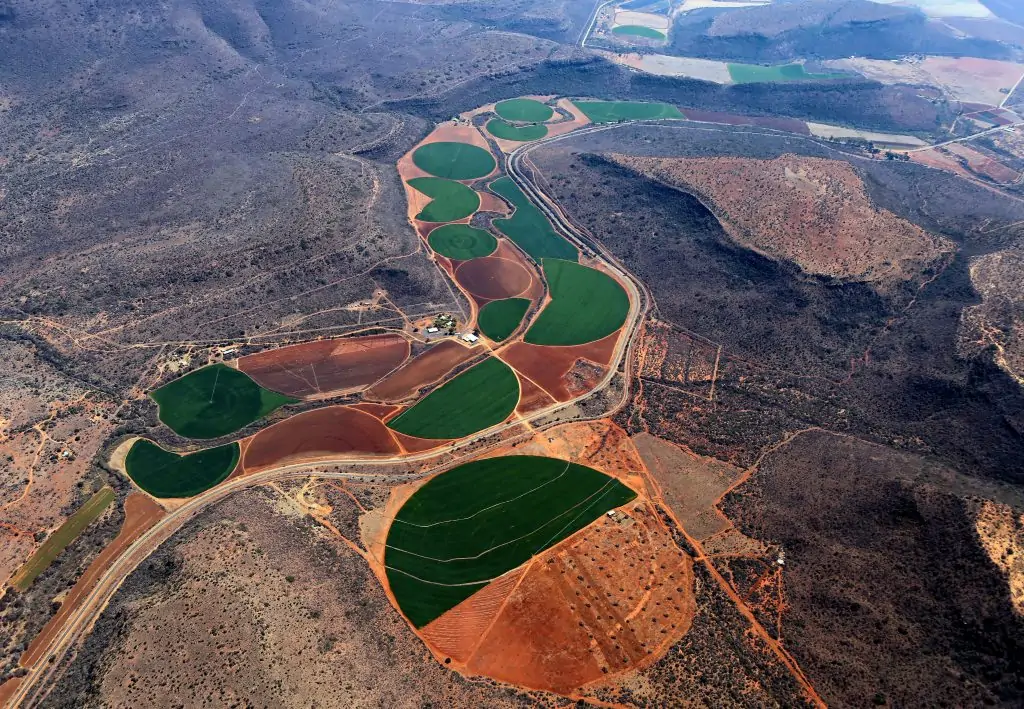
In a stark warning against the proposed policy of land expropriation without compensation, the Freedom Front Plus (FF+) has sounded the alarm, asserting that such a move could push South Africa to the brink of economic collapse. Corné Mulder, the party’s Western Cape leader, emphasized the potentially devastating consequences of this policy during a candid discussion with JJ Tabane at an election town hall held in Cape Town.
Mulder underscored the critical importance of considering empirical evidence when formulating policies that could have far-reaching implications for the nation’s economy and social fabric. He highlighted a significant trend observed in land restitution cases, stating, “The facts indicate that the vast majority of people who received land or had a choice with a transfer of land in terms of restitution did not opt for land but took the money.”
The statement by Mulder encapsulates the core argument against the implementation of land expropriation without compensation—a contentious issue that has dominated political discourse in South Africa in recent years. Proponents of the policy argue that it is a crucial step towards addressing historical injustices and achieving land reform objectives, while critics, including the FF+, contend that it poses a grave threat to the stability of the economy and social cohesion.
The debate surrounding land expropriation without compensation has been characterized by deep-seated divisions within South African society, reflecting the complex legacy of apartheid and the ongoing struggle for socioeconomic justice. Advocates for the policy assert that it is a necessary corrective measure to redress the entrenched inequalities stemming from colonial and apartheid-era land dispossession.
However, Mulder’s remarks underscore the skepticism harbored by some segments of the population, particularly within the opposition ranks, regarding the efficacy and potential consequences of such a policy. The assertion that the majority of beneficiaries of land restitution opt for financial compensation rather than land itself raises pertinent questions about the viability of large-scale land redistribution initiatives.
The FF+ has been vocal in its opposition to what it perceives as policies that undermine property rights and free-market principles. Mulder’s warning about the economic ramifications of land expropriation without compensation reflects the party’s broader ideological stance on issues related to land reform and economic governance.
Moreover, the timing of Mulder’s remarks, coming amidst a heated electoral campaign season, underscores the political significance of the land expropriation debate. With political parties jostling for voter support and articulating competing visions for the future of South Africa, contentious issues such as land reform have assumed center stage in the national discourse.
The implications of land expropriation without compensation extend beyond the realm of economic policy, touching on fundamental questions of justice, equity, and social cohesion. The policy has elicited impassioned responses from various quarters of society, reflecting divergent perspectives on the legacy of apartheid and the path towards a more inclusive and equitable society.
As South Africa grapples with the complex challenges of nation-building and socioeconomic transformation, the debate over land expropriation without compensation epitomizes the delicate balance between historical restitution and economic pragmatism. The FF+’s warning against the potential economic fallout of such a policy serves as a reminder of the need for evidence-based policymaking and constructive dialogue to navigate the intricate terrain of land reform.
In conclusion, Corné Mulder’s cautionary remarks at the election town hall in Cape Town underscore the high stakes involved in the debate over land expropriation without compensation. As South Africa stands at a crossroads in its quest for justice and development, the FF+’s warning resonates as a timely reminder of the imperative to tread carefully in pursuit of transformative policies that uphold both economic stability and social justice.
This website uses cookies.